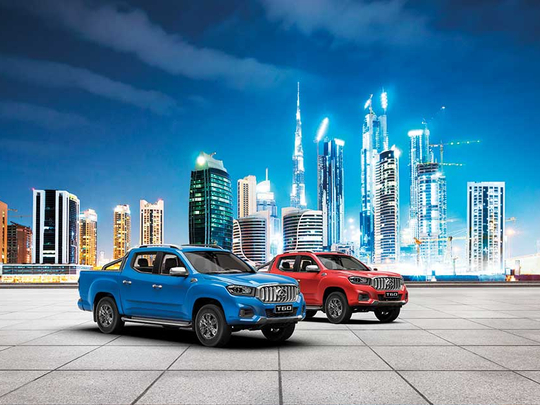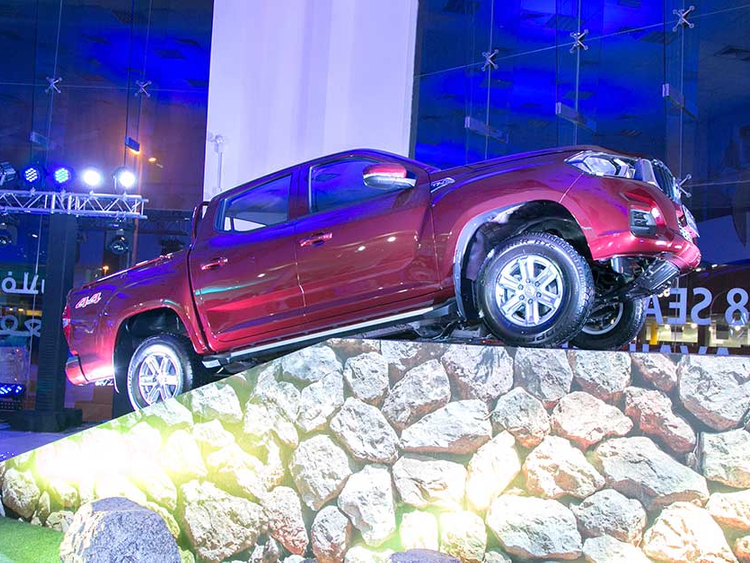
Dubai: China’s Maxus is ready to shift gears and get on the fast lane with its latest advancement in technology and fuel-efficient vehicles.
The marque, formerly LDV in the UK, is one of several owned by the Shanghai Automotive Industry Corporation (SAIC), the Chinese-state owned manufacturer, which also has MG and Roewe under its umbrella and produces cars for Volkswagen and General Motors.
Now Maxus aims to unleash a series of energy efficient and environmentally friendly vehicles over the next few years.
SAIC produces around 6.5 to 7 million cars a year. During a media trip to Shanghai, the company displayed its array of cars, including semi-autonomous cars controlled by an app.
The company shares its research and development across all its products, which individual companies customise based on their needs.
“When the Chinese first started in the automobile industry they were known to be at the cheap end of the market, because there were hundreds of manufactures in China. But now the government of China is trying to consolidate the automobile industry.
“Today they are trying to position China as a global hub of automobile manufacturing and research and development.
“In the last two years China has become the world’s largest automotive market. It has overtaken the US and around 22-23 million automobiles are being sold domestically in China every year. Added to that are their export of automobiles.
“When you look at that trend you can see that China is fast bridging the technology gap. Plus with the vast manufacturing base they have, they will be very commercially competitive with a focus on technology and future trends. You cannot ignore the Chinese automotive industry anymore, and giants of this industry realise this. SAIC is one of the largest automobile companies in China.”
Al Naboodah has been associated with Maxus for the past five years. Talking about the process of bringing any new product, Kumar said the company will not bring in a new product until it has been tested for a full year, through summer and winter, as most manufactures are “not aware of what the challenges of this climate are.”
Testing process
A visit to SAIC’s state-of-the-art Research and Development Centre in Shanghai gave an insight into the extensive testing process conducted before manufacturing a car.
“Temperatures are very, very high. So it is a unique challenge here. Most countries will have temperatures that fall significantly at night, but in GCC countries it can be 45 degrees during the day and 43 in the night. It is challenging and we validate by extensive testing — with the principals who sends a team and testing machines and then we go for fine-tuning before we launch.”
Looking ahead, Kumar said, “We are growing, contrary to what is happening in the motor industry, which is going down for several reasons. Not just market conditions, in general we are growing, we have had positive growth. We have had new products and new variants within the products and expanded our market reach and significant growth, particularly with the Maxus.”
Al Naboodah is currently distributing purely commercial trade vehicles such as delivery vans and light passenger vans and plans to add, as a second phase, one-tonne pickup trucks and then the MPV.
“We have already tried it, tested it and launched it. We have seen good traction but we believe there is more potential in the market for this product because every industry that is involved in moving people, and moving people in a more comfortable way, will be looking at this product. So we will be expanding on that front,” Ajit Kumar added.
“Plus, in the not so distant future the Maxus will also be having an SUV — this is taking us in to a new domain, a new area for us to start working on.
“What that means is the that the whole portfolio of automotive products from passenger vehicles, which includes the SUV; the luxury pickups; and the MPV, to commercial vehicles such as the 5 cubic metre vans to 12 cubic metre vans in order to serve all the industries in the UAE.”
The SUV D90, which is currently undergoing testing for the UAE climate, primarily validating the AC for humid summer months, is expected to be completed by the end of this year.
“Beginning of next year there will be a formal launch,” Kumar added.
Electric models
With another pickup, the T60, already launched in the UAE market the addition of D90 is expected to give more traction to Maxus’ growth.
However, although alternate fuel vehicles such as electric models and fuel cell variants, were available for testing, they will not be offered for sale this year.
“We are evaluating electric panel vans and buses as well as pickup from Maxus. Once the product reaches certain minimum acceptable level of maturity we will look forward to launching it. I believe the next auto show in 2019 may be the best time,” Kumar said.
Kumar said vehicle cost was not a primary factor in Al Naboodah’s thinking. “We do not look at cost because with the commercial vehicle it is always the Total Cost of Ownership (TCO) that matters, which has various aspects. You might have a lower entry price but higher running costs.
“So our focus has been on vehicle productivity, vehicle reliability, and residual value so we create a total package for the customers rather than look at it from a purely, low-price Chinese vehicle. We say this meets all your criteria of functionality and this is how we position it.
“The Chinese economy is expanding. It is no longer a low-cost economy, so if you want the best high value features in a Chinese vehicle they are the same price as a European or Japanese vehicle because components are global, the manufacturing base is global, and today labour costs are not what they were 15 years ago.
“Customers understand that. What they are really looking for today in the Chinese brand is what kind of support does this brand have? Will it have a reliable source of spare parts? Does my local partner have all the maintenance facilities I need? This is what all our customers are asking for and not particularly the price.”













